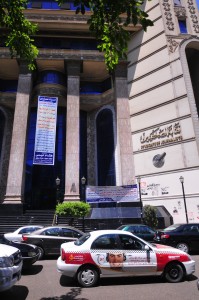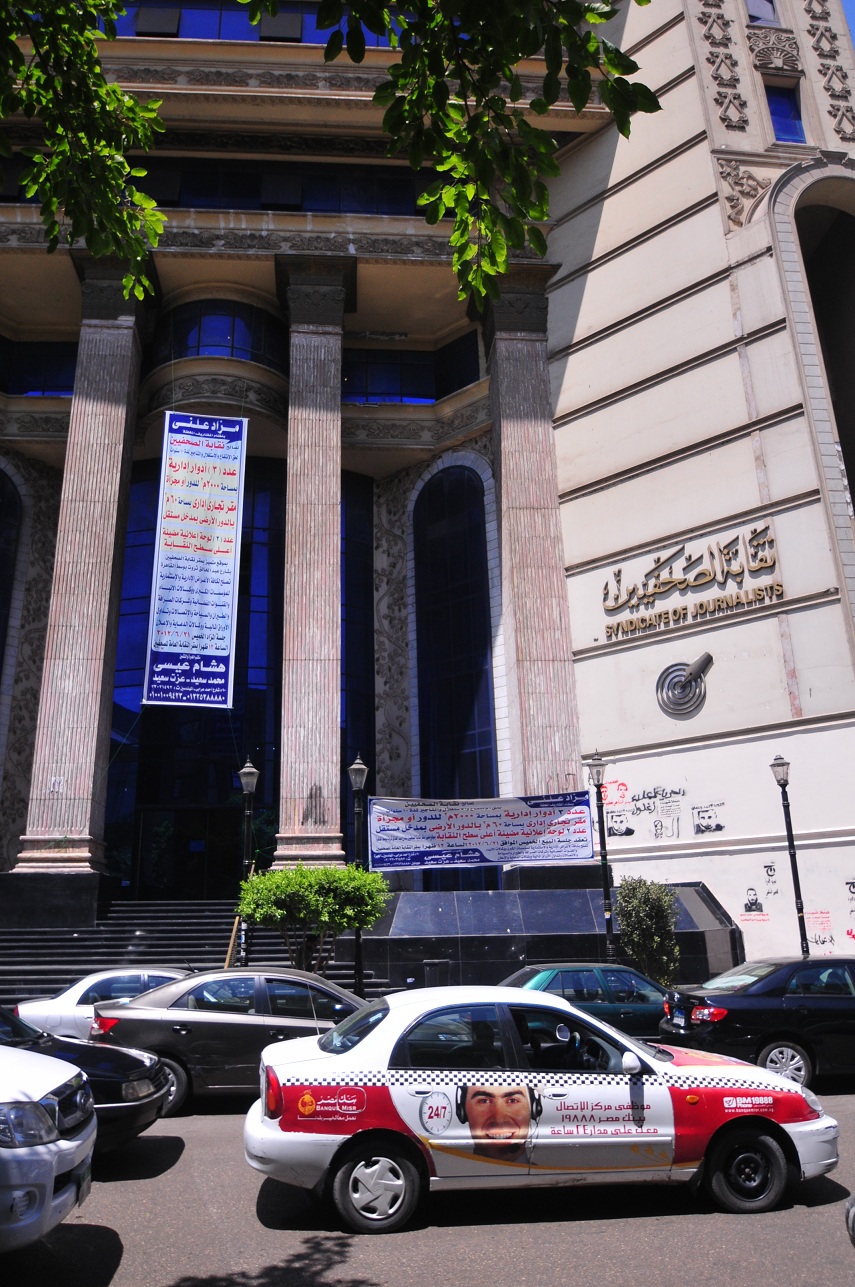A group of injured protesters spoke at the Press Syndicate on Sunday, recounting their testimony of clashes in Tahrir Square on Friday. Speakers at the press conference provided accounts of what they described as brutality from the Muslim Brotherhood and its supporters.

Friday’s marches were protesting the current Constituent Assembly and perceived failures of President Mohamed Morsy’s first 100 days in office
Political activist, Rasha Azab, pointed to various conflicting reports and statements coming from the Freedom and Justice Party (FJP) and the Muslim Brotherhood leadership concerning the group’s presence in Tahrir Square on Friday.
She went on to claim she and other protesters witnessed men wearing shirts and caps with the FJP logo and Morsy’s likeness chanting “God is great” in Arabic, tearing down a stage in the square which had been constructed by the coalition.
Yehia Salah, a member of the Doctors of the Revolution group, said his son’s skull was fractured when struck by a stone thrown from the direction of the MB youth. He likened actions taken by MB supporters to those committed by the Central Security Force (CSF) in the past, and claimed the MB targeted dissidents. “The new regime doesn’t need the [CSF] when they have their own people,” he said in reference to MB supporters.
“We did not expect the people who lived with us for 18 days in [Tahrir] square to call us disbelievers and attack us like we’re enemies,” he added.
Nashwa Mohamed Ahmed, who broke her left arm, said she marched with a group representing the Popular Current, and upon reaching Tahrir Square was attacked with stones.
Ramy Salah, another protester who had an injured leg, said he had decided to protest against the Muslim Brotherhood, who he maintained was exhibiting a pattern of behaviour similar to that of the ousted regime. Salah claimed FJP members were stationed at specific entries to the square, prohibiting entry of non-members and even detaining people before handing them over to security forces.
The group emphasised the events of 12 October were part of a pattern of behaviour of Muslim Brotherhood supporters. They mentioned how MB supporters also attempted to halt a march to the People’s Assembly on 31 January following the beginning of parliamentary sessions.
Al-Dostour Party and the Popular Current also condemned the violence of last Friday in a statement issued on Sunday, calling for more protests on Friday 19 October. The coalition dubbed the second straight Friday of protests “Egypt is not a manor…Egypt is for all Egyptians.”
In a joint statement, the group claimed it had taken to Tahrir Square last Friday to call for justice for “martyrs of the revolution” and take a stand against a single faction dominating the political scene of post-revolution Egypt.
“But some members of the new ruling party refused the right to opposition forces to express their views peacefully and criticise the ruling party,” said the statement. “They attempted to disrupt opposition rallies.”
The parties said MB members had created tension in the square “between…sons who united during the revolution against oppression and injustice.”
“We now find some of those affiliated with the ruling party repeating the same mistakes of the old regime,” said the parties.
The statement said the parties’ hold the Muslim Brotherhood and President Morsy accountable for the violence that took place and demanded an investigation to find the perpetrators of the violence.
Al-Dostour and the Popular Current outlined three demands for next Friday’s protest. Firstly, they demanded the government open investigations into the deaths of civilians at the “Battle of the Camel,” the massacres at Maspero and Port Said, and the events of 12 October.
Secondly, the group called for “the restructuring of the Constituent Assembly in a balanced manner, to write a constitution that represents all Egyptians.”
Thirdly, the statement demanded that the Morsy administration take concrete steps to address economic problems within the country, including canceling a decision to close shops early, and the creation of a fair minimum wage linked to prices.
A group of 20 movements and parties, including Al-Dostour and the Popular Current, had called for protests on 12 October in a joint statement six days beforehand. On Wednesday of that week, the Muslim Brotherhood then called for a “million man march,” on the same Friday, protesting acquittals of figures accused of killing protesters in the “Battle of the Camel.” The “Battle of the Camel” was an attack on Tahrir Square on 2 February which left roughly 11 protesters dead.
All the parties that participated in the anti-government protests, held the Muslim Brotherhood and President Morsy accountable for the violence which left over 100 injured. The Muslim Brotherhood leadership has denied its role in the clashes and blamed “thugs” for the violence, pointing to the burning of MB buses.

